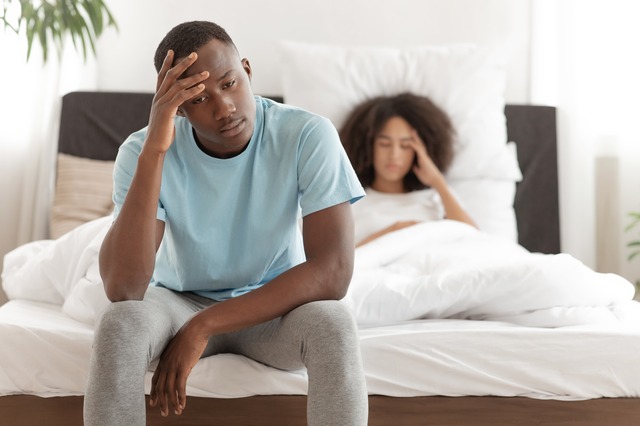A dip in sexual desire or libido can be distressing and perplexing for many. Often dismissed as a mere psychological issue or an inevitable consequence of aging, there’s much more to the story. Low libido can indeed be a symptom or side effect of an underlying health concern. Recognizing the potential health implications behind decreased sexual desire is crucial for effective diagnosis and treatment. Let’s dive deeper into the health concerns associated with low libido.

1. Hormonal imbalances:
One of the leading causes of decreased libido in both men and women is hormonal imbalances.
Testosterone: often regarded as the male sex hormone, it’s vital for libido in both genders. Low testosterone levels can cause a drop in sexual desire, energy, and mood.
Estrogen: in women, particularly during the perimenopausal and menopausal phases, a drop in estrogen levels can lead to reduced sexual interest, vaginal dryness, and discomfort during intercourse.
Thyroid hormones: an underactive thyroid (hypothyroidism) can cause fatigue, weight gain, and low libido.
2. Medications and drug side effects:
Several medications, particularly those used for depression, hypertension, and certain hormonal treatments, can lower libido. Examples include:
- Selective serotonin reuptake inhibitors (SSRIS).
- Beta-blockers.
- Birth control pills (in some women).
If you suspect your medication is affecting your libido, consult your doctor. They may adjust the dosage or switch to another medication.
3. Chronic medical conditions:
Several long-term health issues can indirectly influence libido by affecting your energy levels, self-confidence, or causing pain. Conditions such as diabetes, high blood pressure, coronary artery disease, and cancer can reduce libido, both due to the conditions themselves and the medications used to treat them.
4. Depression and mental health issues:
Mental health plays a pivotal role in one’s sexual health. Depression, anxiety, stress, and related conditions can profoundly reduce sexual desire. The neurotransmitters (brain chemicals) that influence mood also play a role in sexual desire, making their imbalance a potential cause for libido changes.
5. Sleep disorders:
A good night’s sleep is crucial for overall health, including libido. Conditions like sleep apnea not only result in interrupted sleep but also lower testosterone levels, further impacting libido.
6. Painful sexual conditions:
For some, the physical act of intercourse is painful, leading to a natural aversion to sexual activity. Women might experience conditions like vaginismus, vulvodynia, or chronic vaginal infections, all of which can reduce interest in sex. In men, conditions like peronei’s disease can make intercourse painful.
7. Alcohol and drugs:
Excessive alcohol consumption can lead to impotence in men and reduced sexual desire in both men and women. Similarly, long-term use of drugs, especially opiates, can also reduce libido.
8. Aging:
While aging is a natural process, it’s also linked to several health concerns. Age-related health problems, combined with hormonal changes, can lead to reduced libido. However, it’s essential to note that many individuals remain sexually active and have a healthy libido well into their older years.
9. Surgery and physical causes:
Certain surgeries, especially those related to the prostate gland or reproductive organs, can affect sexual desire and function. Furthermore, issues like arteriosclerosis, which affects blood flow, can lead to decreased sexual desire.
Addressing low libido:
If you or someone you know is experiencing reduced libido, especially if it appears suddenly, it’s essential to consult with a healthcare professional. They can provide:
Medical examination: a thorough checkup can help identify any underlying health concerns that might be affecting libido.
Medication review: if you’re on medication, a review can help ascertain if it’s the cause behind reduced sexual desire. Adjustments or alternatives can be explored.
Therapy: sometimes, the cause behind low libido might be psychological. In such cases, counseling or sex therapy can be immensely beneficial.
Lifestyle adjustments: regular exercise, a balanced diet, reduced alcohol consumption, and adequate sleep can help improve libido.
Conclusion:
Low libido is a multifaceted issue, intertwined with physical health, mental well-being, lifestyle, and relationships. While occasional dips in desire might be normal, persistent low libido, especially when accompanied by other symptoms, might be a red flag signaling an underlying health concern. Recognizing and addressing these concerns not only enhances one’s sexual well-being but also ensures holistic health.